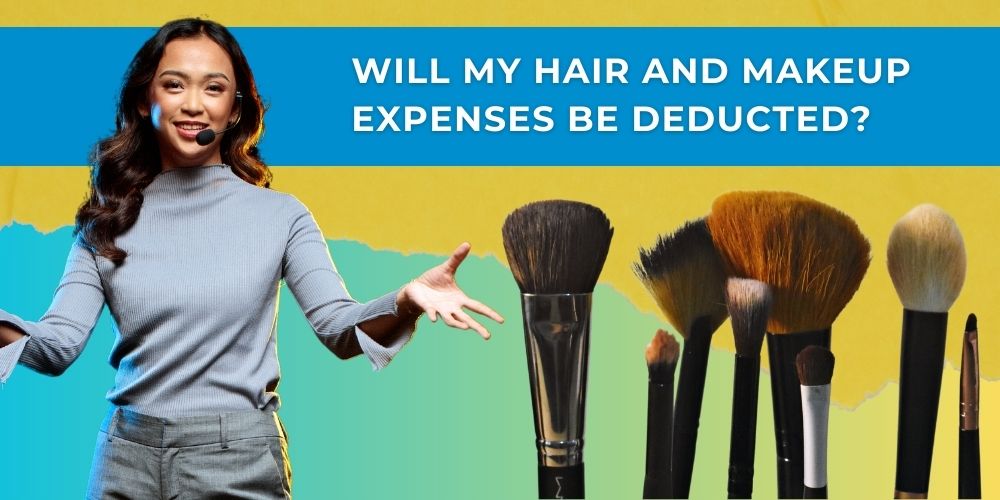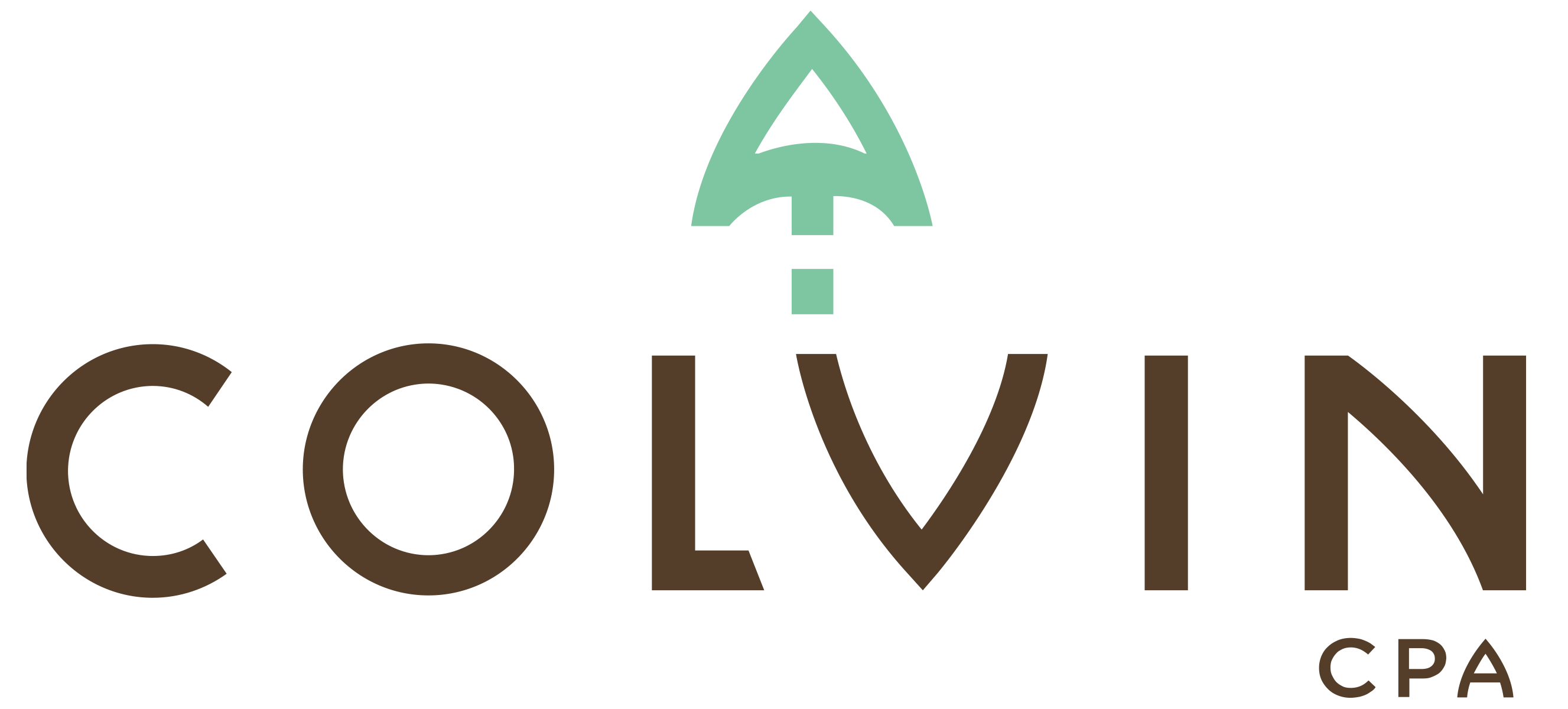Can a speaker deduct work clothes and hair or makeup expenses?

There are 4 clutch questions to answer when you are wondering if any business expense is deductible on your tax return. In summary, business expenses are typically deductible if they meet all 4 of these requirements. They must be ordinary, necessary, exclusive and not denied by specific IRS laws. Let’s look at the 4 clutch questions and then we’ll apply them directly to work clothes and hair or makeup expenses for speakers.
- Is the expense ordinary for your industry? Ordinary means that the expense is common and generally accepted by similar businesses. For example, voice coaching is an ordinary expense for public speakers, not so much for construction workers. You don’t need to feel sorry for construction workers though. They ordinarily wear safety gear and can deduct them. Most public speakers can’t deduct steel toe boots or helmets unless maybe their stages are on construction sites.👷
- Is the expense necessary for your business? Necessary means helpful and appropriate for the businesses motives. It does not mean crucial. For example, a quality microphone is a necessary expense for delivering virtual workshops, not so much for nurses. You don’t need to feel sorry for nurses though. They are typically required to wear scrubs and non-slip shoes and can deduct them. Most public speakers cannot deduct clothing because they rarely have uniforms. 👩⚕️
- Is the expense exclusive for use in your business? Exclusive means that there is no benefit to your personal life. If the expense is for both business and personal use, an allocation will need to be determined. For example, a cell phone is commonly split 50% business and 50% personal. If you have a business phone separate from your personal phone, then 100% of your business phone may be deductible. ☎️
- Is the expense related to any specific IRS laws? You will save yourself a lot of time if you talk with an accountant who is fluent in current tax laws and well-versed in the historic outcomes of related tax court cases. It’s even better if the accountant’s niche is in your industry and they understand your expenses. ⚖️
At Colvin CPA, we take the worry out of accounting for keynote speakers and a very common question that we hear is:
Can I deduct the expenses related to my appearance when I am getting on stage or having marketing photos taken or shooting video for a promo reel? I pay hairstylists, makeup artists, wardrobe advisors and buy expensive clothes to wear for these events.
- Are payments for hairstylists, makeup artists, wardrobe advisors and clothes ordinary for the speaking industry? Yes! It is generally accepted that keynote speakers will spiff up their appearance before taking the stage at an event. Your keynote obviously relies on your wise words but looking like an expert is also important. After all, you want the audience to be focused on the stories that you share and not be distracted by wondering if you stuck your finger in an electrical socket on your way to the stage. 🔌
- Are payments for hairstylists, makeup artists, wardrobe advisors and clothes necessary for a keynote speaker? Yes! Remember that an expense does not have to be crucial to qualify as necessary. Creating an impression that oozes competence and modernity may be helpful and appropriate to build the audience’s perception of your work. Your appearance may need to be as cutting-edge as your research and you only have the audience’s attention for a short period of time. Go ahead and use all of the tools available to show them that you are dynamite. 🧨
- Are payments for hairstylists, makeup artists, wardrobe advisors and clothes exclusive for use in your speaking business? Sometimes yes and sometimes no! This is where we need to start splitting hairs, pun intended. You’re welcome! If an expense relates solely to your appearance while on stage, it may be deductible. But, if an expense benefits your personal life too, it may not be deductible. A good way to decide is to determine if the expense is still helping you look sharp the day after the event. 🌅
- Did you pay a stylist for a haircut and hair styling the day of your keynote event? Ask your stylist for a receipt that separates the fees for the haircut from the styling. The styling is deductible because it relates to the event only. The haircut is not deductible because it will benefit your personal life too. It will be nice to have those bangs out of the way for your bike rides too! 💇♀️
- Long lasting hair treatments such as coloring, blowout, keratin treatment, hair extension, fairy hair, highlighting, waxing, and threading are not deductible because they still help you look sharp for days after the event. The same is true for other services such as manicures, pedicures, facials, etc. 💅🏼
- Did you pay a consultant to select your wardrobe for the event? Ask your consultant for a receipt that separates the fees for your stage outfit from the fees for your dinner outfit that you’ll wear after your keynote. The portion of the fees that are used for your stage appearance are deductible but off-stage wardrobe advice is not. 👗🥿
- Are payments for hairstylists, makeup artists, wardrobe advisors and clothes related to any specific IRS laws? Yes! In historic tax court decisions, there are four overarching principles that are repeatedly mentioned when determining the deductibility of these types of expenses.
- i) Do you have detailed receipts? In the event of an audit, the auditor’s determinations are presumed correct and you bear the burden of proving the auditor wrong. For example, if you have a credit card statement proving a payment to a salon, it is not enough evidence. You need a detailed receipt to prove that you were paying for a hair styling and not a haircut. 🧾
- ii) Did you file the required forms 1099? The easiest way to comply with form 1099 laws is to pay for all services via credit card or PayPal. It shifts the 1099 compliance requirements to the credit card processor instead of you. Payments via Zelle, Venmo, and debit cards don’t count here. If you cannot pay via credit card, you are required to comply with 1099 laws and will need to collect a form W-9 from the service provider before you pay them and then you also have to file any required forms 1099 in the following January. 📆
- iii) Would an average person wear it on the streets? This is the rule that prevents deductibility of most all clothing and make-up. If you buy or rent something that would be worn by an average person on the streets, then it is not deductible. IRS laws deem that it has too much potential for personal use. Tax courts are not considering what you personally would wear on the streets or what you factually wear on the streets. The tax courts are only considering if an average person would wear the same thing on the streets. 🚏
- Did you buy a leprechaun costume for your keynotes? That is deductible because the average person would not wear a leprechaun costume on the streets. You can also deduct the dry cleaning costs and seamstress costs to maintain it. ☘️
- Did you rent formal wear for your keynote? That is not deductible because the average person does wear formal clothes on the streets. Remember that we are talking about all streets which include your neighborhood and also Billionaires’ Row in NYC. If you have to pay to clean or repair the formal wear, it is not deductible either. 🤵🏿♂️
- Did you buy lipstick, mascara, hair gel or eye serum for your keynote event and wear it on stage even though you never wear it off of stage? That is not deductible because there are average people wearing these products on the streets. 💄
- Did you buy blue face paint to perform with The Blueman Group? That is deductible because it is very rare to see someone on the streets that is painted blue from their neck up. 🥶
- iv) Does it relate to maintaining your hygiene, health, fitness and nutrition? If so, the expense is not deductible. These expenses can’t be allocated like your cell phone because they are deemed to be primarily for personal benefit.
- Dental services like braces or teeth whitening are not deductible because they make your smile contagious both on stage and off stage. 😁
- Fitness equipment or training are not deductible because they increase your stamina both on stage and off stage. 🏋🏽
- Nutritional products or services are not deductible because they add pep to your step both on stage and off stage. 💊
Tax laws have a lot of gray areas when it comes to deductible business expenses. Tax courts always apply the 4 overarching principles that we’ve just discussed. They also consider your intentions and your industry. As a result, outcomes can often vary from what you’d expect. Working closely with an accountant will help you set up these transactions to reduce the risk that an auditor will find them non-deductible. Here are some examples of court cases with interesting outcomes. 👩🏾⚖️
- This 1965 case of Jerome Mortrud v Commissioner of Internal Revenue is about a man who woke up at 4:00 am, six days a week, to purchase milk from a wholesaler. He then resold it to his own customers via a 90 mile delivery route. He wore a simple uniform of collared shirts and slacks and had his business name “Mortrud Dairy” stitched on his shirts, jackets and hats. Although average people are definitely wearing collared shirts on the streets, they are not embroidered with this man’s logo. The court found the expense of purchasing and dry cleaning the clothing to be ordinary, necessary and exclusive for business use and allowed the deductions. 🐄
- This 1958 case of Betsy Yeomans v Commissioner of Internal Revenue is about a woman working as a fashion coordinator. She organized fashion shows and was expected to portray fashion expertise. She often paid for clothes that she wore to events. Sometimes she would even just wear them to one event because they were only ideal for that audience. Afterwards she would donate the items or just didn’t wear them because they were not her personal style. Although she had receipts, her clothing was desirable to average people who would have worn them on the streets and the court found the expenses were not ordinary, necessary or exclusive and did not allow the deductions. 🧥
While Colvin CPA would be terrible at advising you on what to wear on stage, we are excellent at advising you on how to take as many allowed business deductions as possible.
Is Maximizing Your Deductions as a Speaker on Your Agenda?
Navigating the complex world of tax deductions doesn’t have to be a solo journey. Connect with Colvin CPA Today and step into the spotlight with confidence, knowing your tax strategy is crafted by experts.
Have a related topic you’d like to learn more about? Share it with us, so we can add it to our blog!


